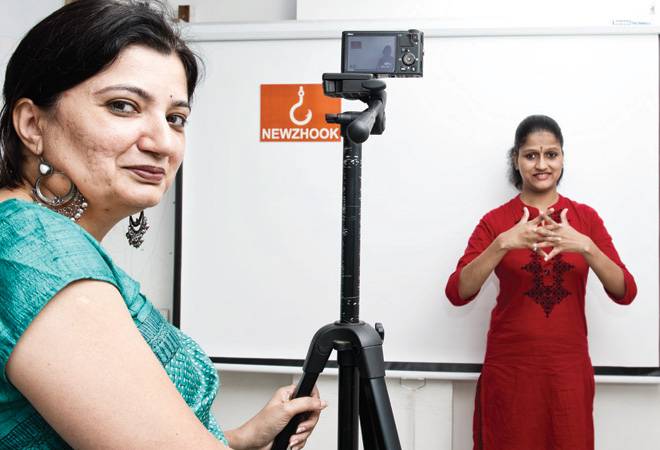Enabling differently abled people go about their daily life seamlessly should be the next milestone for innovative companies.
At first glance, BarrierBreak’s office in Goregaon (East) looks much like any other workplace. Unless you consider the staff working there. About 70 per cent of the 140-people team is differently abled, coping with visual, auditory and cognitive challenges. An inclusive life is the company’s raison detre and technology is its invincible power tool to help others with accessibility. When Shilpi Kapoor set up BarrierBreak Solutions in Mumbai way back in 2004, she realised that “inclusion is all about letting people go about their daily life seamlessly”. So her company is developing tech products and services around that to crack the disability market.
Globally there are 1.3 billion people with disabilities, and the market size is as big as China, but not too many businesses have delved into special needs products and services.
BarrierBreak started with software testing services, required to assess if websites and applications are disabled-friendly, and catered to clients in the US and Europe. Next, Kapoor developed digital books for the visually impaired. In 2007, she conceptualised TechShare India, an accessibility and assistive technology conference and exhibition to create awareness. It was a turning point, and for the first time, BarrierBreak managed to get companies, organisations and practitioners on a common platform to share stories about accessible solutions and how technology can make a difference.
In March 2016, the company launched an inclusive news app called NewzHook so that the hearing and the visually impaired can stay updated. Kapoor has also set up another business called 247 Accessible Documents, a cloud-based, self-service portal where one can upload any document and make it accessible via speech recognition software, magnification support, eye-tracking solutions and screen readers.
It took the venture six years to turn into a sustainable business. But BarrierBreak now works with companies such as Pearson and Microsoft and claims to have grown 63 per cent last year with sales of `7 crore. Next on the cards is an augmented reality tool to create empathy for people with low vision to understand how they experience life.
Article Source: Business Today


Pingback: Unique visual art exhibition by differently-abled artists impresses tricity - SLSV - A global media & CSR consultancy network